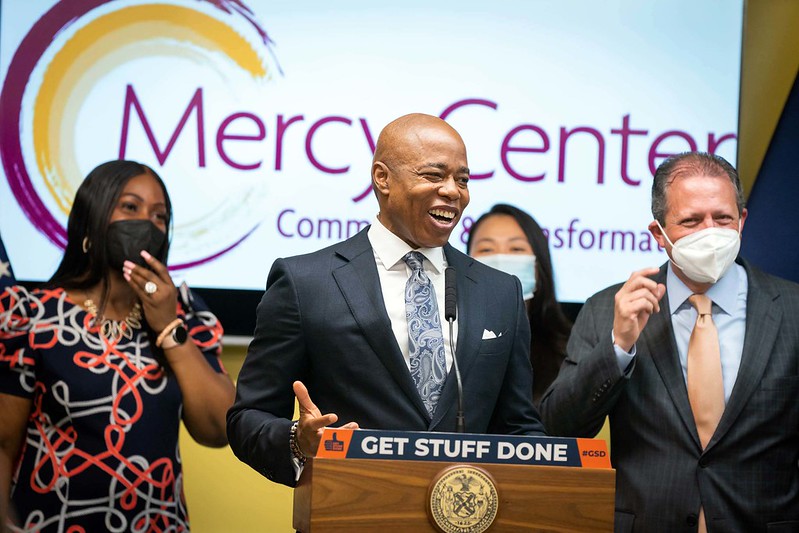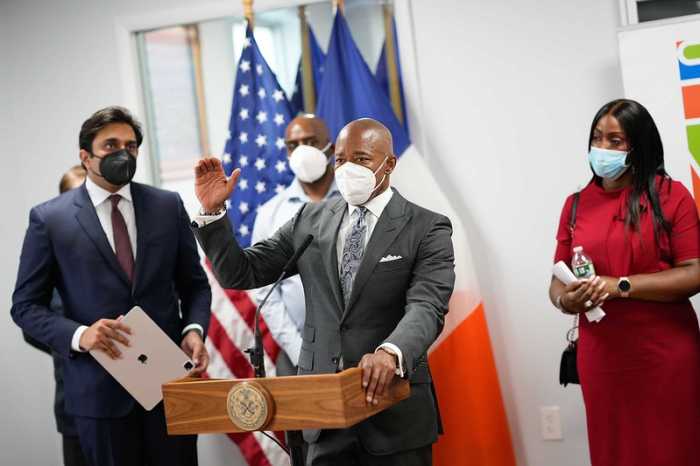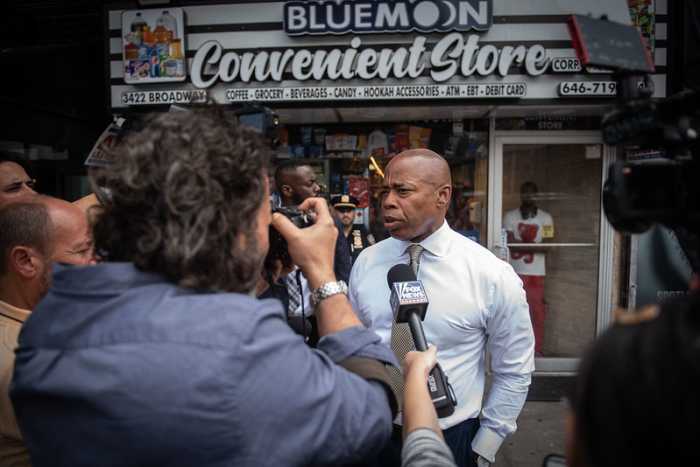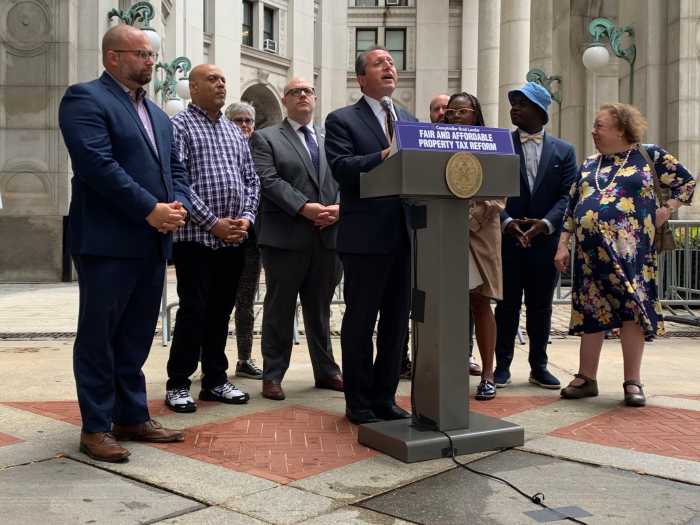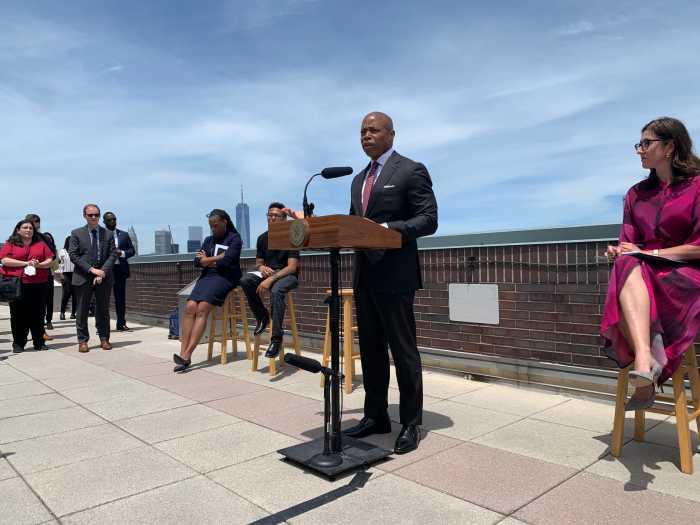Mayor Eric Adams and city Comptroller Brad Lander announced Friday that through a joint effort their offices have unlocked over $4.2 billion owed to nonprofits working with the city.
Speaking at Mercy Center in the South Bronx Friday morning, Hizzoner said the program – dubbed the “Clear the Backlog Initiative” – was designed to address the massive backlog of hundreds of nonprofit contracts that have gone unfulfilled by the city for over a year now. The effort, a collaboration between the Mayor’s Office of Contract Services (MOCS) and the comptroller’s office, has registered or submitted for registration over 2,600 contracts over the past 12 weeks, accounting for two-thirds of the city’s backlog.
Adams said this initiative resulted from conversations between himself and Lander about how to make government work more efficiently – an issue Adams has spoken about frequently.
“The Comptroller and I spoke immediately after the primaries and we stated ‘let’s zero in on those things that are making our government inefficient,’” Adams said. “And the top of the list was what we were doing to nonprofits. We had them on the front line, doing the most difficult work, filling the gap. Yet when it was time to pay them for their services, we had to go through the bureaucracy that got in the way.”
Adams and Lander were joined by Deputy Mayor for Strategic Initiatives Sheena Wright and Deputy Mayor for Mayor for Health & Human Services Anne Williams-Isom – both of whom coordinated this effort on behalf of the mayor. As well as MOCS Director Lisa Flores, City Council Deputy Speaker Diana Ayala (D-Manhattan, Bronx) and City Council Member Julie Won (D-Queens) – who chairs the council’s Committee on Contracts.
The effect of these contracts not getting fulfilled in a timely manner is that hundreds of contracts that provide social services on behalf of the city weren’t getting paid by the city for over a year, Lander said, even though they never stopped offering services. The contracts in question were signed at the start of the last fiscal year, on July 1, 2021 – almost 13 months ago.
“Just imagine if we tried to say to a public school or a police precinct or a firehouse, ‘please begin to work on July 1 because we’d like our people to be safe from fires and crime and get educated, sometime 300 days from now, will register your contract and start the money flowing,’” Lander said. “There’s just no way you could run a city like that. And yet, that’s what we’ve been doing on the contracted work.”
Contracted work makes up for roughly 20 percent of the city’s overall budget, Lander said, and a much greater portion of its social services budget.
The mayor also celebrated he and Lander’s ability to come together and address this issue, considering there are many issues the two Democrats don’t agree on. Adams is a centrist who often aligns himself with the Democratic Party establishment, while Lander is aligned with the far left.
“Brad and I are probably, on some issues, so far apart,” Adams said while embracing Lander. “But for these men and women in government, to say ‘we have our philosophical differences on things, but what are the things we agree on? We agree nonprofits should be paid, and they should be paid on time.’ And this is a symbol of how between elections, how you get work done. And it’s only the beginning. We are going to continue to say ‘how do we get this inefficient city to function?’”
The initiative is not only focussed on clearing the backlog, Wright said, but also stopping a similar delay in paying nonprofits from happening again. Flores said they can do this by changing the procurement process for nonprofit contracts, which includes looking at the layers of red tape that have been added over decades and removing them where needed.
“And so, as we go through this process and will continue along the backlog initiative, it’s being hyper focused on what state law, what local law, what burdens and processes can we untangle? And really be [a] procurement system for this day and age,” Flores said. “We’ve gotta move forward.”


